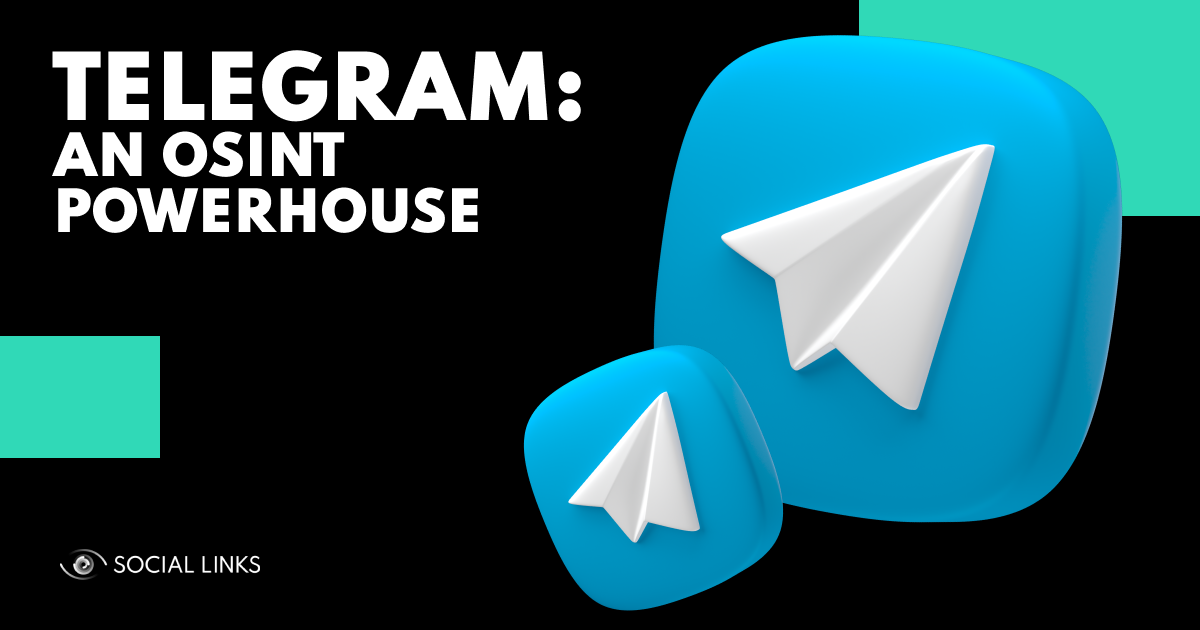Telegram: Tap Into a New OSINT Powerhouse


Important: The webinar is targeted exclusively at law enforcement agencies and the governmental sector.
The rise of Telegram has been quite remarkable. From being a relatively little-known messenger app just five years ago, it has ascended to become a social media giant, seriously competing with Facebook and WhatsApp. Accordingly, the messenger’s importance as a source for OSINT has risen to the same level.
In connection with this theme, Social links are hosting a free webinar on April 26 at 3 pm UTC where we will give practical demonstrations our dedicated Telegram pack and its wide-ranging capabilities:
In the session, we will demonstrate the far-reaching capabilities of our dedicated Telegram integration for SL Professional, and how the messenger can be used to great effect in various OSINT investigations. Intrigued? It would be great to see you there!
Statistically, Telegram is among the top 10 most popular social networks in the world today. The app has 550 million monthly active users – an increase of 175% since 2018 – and as of last year was the 7th most downloaded app in iOS and Android. These users are spread out globally and cover Asia (38%), Europe (27%), Latin America (21%), and MENA (8%).
While Telegram is one of the most popular instant messaging apps for many businesses and individuals around the world, the platform continues to attract nefarious activity such as illicit trade, scams, disinformation campaigns, as well as usage by extremist groups for communication and radicalization. Join our webinar and find out how to combat the issues.
Ivan Kravtsov, Social Links, OSINT specialist, will be joined by Sales Manager Alexandra Samuseva in demonstrating the far-reaching capabilities of our dedicated Telegram integration for SL Professional, and how the messenger can be used to great effect in various OSINT investigations.
Intrigued? It would be great to see you there!